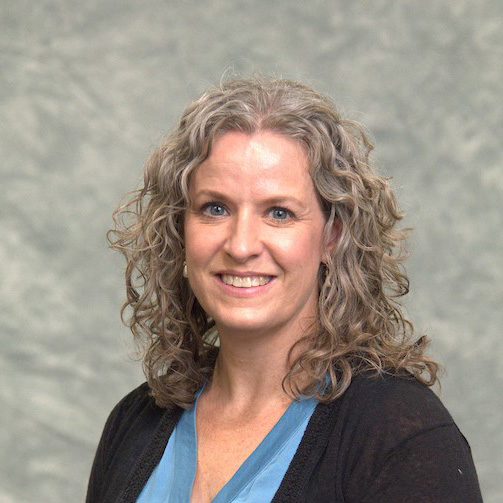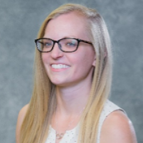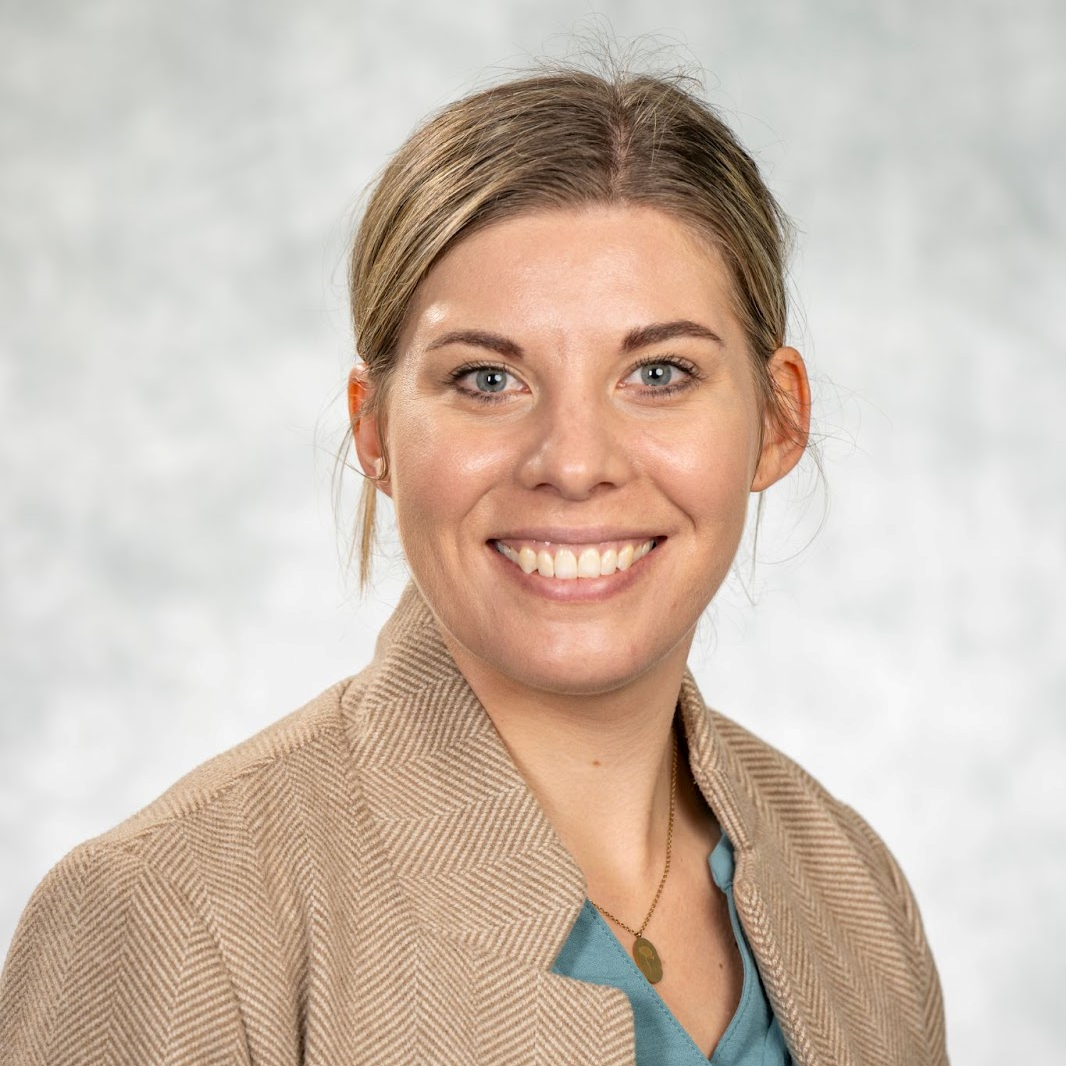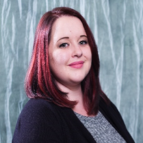Fostering interdisciplinary excellence
The Department of Interdisciplinary Health Sciences (DIHS) delivers high-quality, evidence-based, and interdisciplinary education in the core health sciences and provides technical expertise to support members of the Arizona School of Health Sciences (ATSU-ASHS) community in scholarly activities.
Vision
Our vision is to be a leader in innovative health sciences education and research, and foster a culture of interdisciplinary collaboration where all members of our community are empowered to achieve their full potential.
Our programs strive to enhance learning through quality education and advance scientific knowledge, while also serving as a responsive resource to support the Arizona School of Health Sciences and its partners.
Mission
The Department of Interdisciplinary Health Sciences strives to uphold a commitment to excellence in interdisciplinary health sciences education and research. To achieve this, we use innovative and flexible methods to deliver high-quality, evidence-based education offerings to support student and lifelong learning. In addition, we foster an interdisciplinary collaborative culture by offering various learning and scholarly activities and resources to our students, faculty, and community partners.
DIHS strategic plan initiates (2023-2028)
- Enhance quality of interprofessional education along the continuum of learning.
- Support efforts to advance scientific contributions.
- Promote interdisciplinary community engagement.
Core Course Offerings
The DIHS faculty are recognized as content experts with extensive teaching and research experience. The faculty's commitment to excellence extends into the classroom where they deliver core courses that are foundational to graduate health professions education. The interdisciplinary environment of the core courses further enriches learning for students in the ATSU-ASHS.
ASHS 6100: Human Anatomy I
credits: 4
This course is designed to enhance health professions students' knowledge and application of human anatomy, specifically as its structure relates to function of all regions and systems. It is also intended to build on foundational human anatomy using prosected human cadavers, imaging, and technology to advance students' ability to recognize anatomical relationships and their relevance in clinical practice and patient care. In order to prepare students to apply their anatomical knowledge to their clinical practice, this engaging course allows learners to develop critical thinking skills and self-directed learning strategies early in their graduate schooling through participating in small group and active learning methods. Anatomical regions and systems covered in this course include: nervous system, upper extremity, and back and trunk.
ASHS 6200: Human Anatomy II
credits: 4
This course is designed to enhance health professions students' knowledge and application of human anatomy, specifically as its structure relates to function of all regions and systems. It is also intended to build on foundational human anatomy using prosected human cadavers, imaging, and technology to advance students' ability to recognize anatomical relationships and their relevance in clinical practice and patient care. In order to prepare students to apply their anatomical knowledge to their clinical practice, this engaging course allows learners to develop critical thinking skills and self-directed learning strategies early in their graduate schooling through participating in small groups and active learning methods. Anatomical regions and systems covered in this course include: trunk, lower extremity, and head and neck.
ASHS 6300: Research Methods and Design
credits: 3
This course will focus on the development and application of graduate level knowledge and skills related to research methods in the health sciences. Skills regarding the development of a research proposal, including the identification of a problem, conducting a literature review, and developing a hypothesis, as well as critical review of published research, are integral components of this course.
ASHS 6400: Methods of Data Analysis
credits: 4
The purpose of this course is to provide students with a survey of concepts, knowledge, and tools related to the different methods of data analysis. An understanding of data analysis is essential for modern healthcare professionals, particularly within the context of evidence-based practice and the critical appraisal of the published literature.
Please note: Any residential program not listed here cannot offer F-1 Visas at this time.
Faculty and staff








Arizona School of Dentistry & Oral Health
The below guidelines will be followed when reviewing international students for admission to ATSU-ASDOH.
-
International students applying for admission to ATSU-ASDOH must meet all general requirements for admission as stated in admissions publications.
-
International students must take all prerequisites courses in the United States. Equivalency courses will not be considered.
-
Applicants who have graduated from a foreign college or university should submit acceptable evidence of U.S. degree/course equivalency. All course work taken at the foreign institution must be evaluated by one of the following services:
World Education Services
P.O. Box 5087
Bowling Green Station New York, NY 10274-5087
212.966.6311
212.739.6139 FAX
info@wes.org
wes.orgForeign Consultants, Inc.
Credential Evaluation Services
3000 Dundee Road, Suite 2019
Northbrook, IL 60062
773.761.000
foreignconsultants.comEducational Credential Evaluators, Inc.
P.O. Box 514070
Milwaukee, WI 53203-3470
414.289.3400
ece.orgGCE, Inc.
P.O.Box 9203
College Station, TX 77842
1.800.707.0979
gceus.com -
Applicants are required to demonstrate proficiency in English when applying to A.T. Still University’s Arizona School of Dentistry & Oral Health. Written and spoken proficiency in the English language may be demonstrated by one of the following options:
Option 1
English is your first language
Option 2
Graduated from a regionally accredited four-year university or college in the United States (minimum B.A. or B.S.)
Option 3
You are demonstrating your English proficiency by submitting acceptable scores on the Test of English as a Foreign Language (TOEFL)
Acceptable minimum scores for ATSU-ASDOH applications are:
The Computer Based Test (CBT), Internet Based Test (iBT), or the Paper Based Test (PBT) are accepted. The following are the minimum required score based on test type:
Test Reading Skills Writing Skills Total Score CBT 22(minimum) 26(minimum) 213(minimum) iBT 22(minimum) 24(minimum) 80(minimum) PBT 57(minimum) 61(minimum) 550(minimum) The TOEFL is administered by
TOEFL Educational Testing Services
P.O. Box 6151
Princeton, NJ 08541-6151
609.771.7100A.T. Still University’s institutional code is 0339. Please be sure to include this information when you submit your application packet.
- Credit for advanced standing will not be given for any work completed in foreign graduate or medical schools. All students must apply for first-year status.
- International students must have permanent residency status (green card) to be eligible to receive any type of federal financial assistance.
- International students not having permanent residency status must provide written proof of ability to finance their Dental education prior to matriculation.
- Applicants must submit Dental Admission Test (DAT) scores that are not older than three years.
- International students seeking to enter a program of study at ASDOH must hold a F-1 (student) visa issued by the U.S. Government. ASDOH is approved to issue a U.S. Department of Homeland Security For I-20. Upon receiving the completed Form I-20 from ATSU, you will be able to apply for an F-1 (student) visa.
College of Graduate Health Studies
The below guidelines will be followed when reviewing international students for admission to ATSU-CGHS.
- Application:
- Completed and signed admissions application along with a nonrefundable application fee.
- Academic:
- An accredited Masters degree from a university recognized by the Council for Higher Education Accreditation. Applicants who received their qualifying degree from a university outside the United States will have to provide a degree equivalency evaluation.*
- Official transcript from the qualifying degree-granting institution. For students using VA benefits transcripts for all institutions attended are required.
- Minimum Cumulative Grade Point Average (CGPA) of 2.5 (on a 4.0 scale) at the qualifying degree institution.
- Elements of Success:
- A current resume
- Completion of an essay
- English Proficiency **
- Meet technology requirements***
*Applicants who have graduated from a foreign college or university should submit acceptable evidence of U.S. degree/course equivalency. All course work taken at the foreign institution must be evaluated for American institution equivalence by one of the following services:
|
World Education Services
P.O. Box 5087 Bowling Green Station New York, NY 10274-5087 212.966.6311 212.739.6139 FAX info@wes.org wes.org |
Josef Silny & Associates, Inc.
International Education Consultants 7101 SW 102 Avenue Miami FL 33173 305.273.1616 305.273.1338 FAX info@jsilny.com jsilny.com |
|
Educational Credential Evaluators, Inc.
P.O. Box 514070 Milwaukee, WI 53203-3470 414.289.3400 ece.org |
Intl. Education Research Foundation, Inc.
PO Box 3665 Culver City, CA 90231-3665 310.258.9451 ierf.org |
|
American Assn. of Collegiate Registrars & Admissions Officers
One Dupont Circle NW, Suite 520 Washington, DC 20036-1135 (202) 293-9161 aacrao.org |
|
**Applicants are required to demonstrate proficiency in English when applying to A.T. Still University’s College of Graduate Studies. Written and spoken proficiency in the English language may be demonstrated by one of the following options:
-
Option 1
English is your first language
Option 2
Graduated from a regionally accredited four-year university or college in the United States with a B.A. , B.S., or graduate degree.
Option 3
You are demonstrating your English proficiency by submitting acceptable scores on the Test of English as a Foreign Language (TOEFL)
Accepted test types for CGHS are:
The Computer Based Test (CBT), Internet Based Test (iBT), or the Paper Based Test (PBT) are accepted. The following are the minimum required score based on test type:
Test Reading Skills Writing Skills Total Score CBT 22(minimum) 26(minimum) 213(minimum) iBT 22(minimum) 24(minimum) 80(minimum) PBT 57(minimum) 61(minimum) 550(minimum) The TOEFL is administered by TOEFL/TSE Services, PO Box 6151, Princeton, NJ, 08541-6151, USA 609.771.7100. A.T Still University’s institutional code is 0339. Please be sure to include this information when you submit your application packet.
TOEFL Educational Testing Services
P.O. Box 6151
Princeton, NJ 08541-6151
609.771.7100
*** ATSU technology requirements
Apply to any of the College of Graduate Health Studies (CGHS) programs online through ATSU’s application system.
Review application deadline dates
For additional information contact an Enrollment Counselor:
877.626.5577
cghsonlineadmissions@atsu.edu
Programs and services
Interdisciplinary Research Laboratory (IRL)
The Interdisciplinary Research Laboratory (IRL) is housed within the DIHS. The goal of the IRL is to foster an interdisciplinary research culture through shared resources and collaborative relationships. The IRL provides funding to support new and ongoing research activities and includes a physical space (~2,900 square feet) for meeting and research activities, shared equipment to collect data and answer research questions related to a spectrum of human functions.
Equipment in the following areas includes, but is not limited to:
Neuromuscular and cognitive function, including:
- 12-camera Vicon™ Motion Analysis System with Motion Monitor™ software and high-performance computer to capture kinematic data
- EMG unit, the Noraxon Wireless TeleMyo DTS 16-channel system, for assessment of neuromuscular performance characteristics
- GaitRite gait analysis system
- NeuroCom Smart Balance Master with a long forceplate and the Dynavision system, for measuring postural stability and vestibular function
- RealEyes™ binocular XDVR video goggles and camera for assessing and recording eye movements
- LigMaster computerized stress device, available for assessment of ankle, knee, elbow, and glenohumeral joint force-displacement characteristics
- 2 GE LOGIQ e diagnostic ultrasound units
- 4 desktop and laptop computers dedicated to data analysis and writing
- Custom made joint stiffness device
- Electrogoniometers, accelerometers, and hand-held dynamometers
Exercise and metabolic function, including:
- CosMed portable metabolic system
- Treadmill
- Load electronically braked adult and pediatric cycle ergometers
- Monark cycle ergometer
Biometric function, including:
- iMotions software
- Eye tracking
- Galvanic skin conductance
- Polar monitors
Bioinstrumentation function, including
- Biopac equipment and software
- Diagnostic imaging devices
- EMG
- Blood flow
- Note: This equipment is part of the ATSU-SOMA space in the IRL.
Policies and procedures
Coming soon
How to reserve the IRL
The IRL can be reserved, by space or equipment, using ATSU's EMS Rooms Booking Software (portal login required). The IRL is located on Mesa's campus in Building 5845, Interdisciplinary Research Lab.
Equipment (inventory, catalog)
Coming soon; This will also be available in the Interdisciplinary Research component of the FAME program
Gross anatomy laboratories
The gross anatomy laboratories are a shared space for several schools on A.T. Still University's Mesa campus. The labs provide a multi-modal hands-on, interactive learning space for students and faculty to advance their knowledge of the human body. The space includes two gross anatomy laboratories outfitted to support dissection and prosected cadavers (24 cadaver cooler capacity), anatomic models, a brain bank, atlases, and computer workstations with various applications, including 3D anatomy software.
Safety training
Everyone must complete the annual Lab Safety Training before learning in the gross anatomy labs. This training is good for one (1) calendar year from the date of completion; it does not need to be completed every July 1. If you are unsure when you (or your students) completed the training last, please reach out to the following email for confirmation: ashsanatomy@atsu.edu.
Request use of models for teaching
Anatomy models may be checked out from the labs by faculty and staff for teaching purposes. If you would like to check out any models from the lab for teaching purposes, please fill out the Anatomy Model Check-Out Request Form. Within the form, there is a link to the current inventory of models - you will use that document to identify the numbers of the model(s) you'd like to request. After you submit the request, the models will be sanitized and a DIHS faculty member will reach out to you to identify a good day/time for you to pick it/them up.
Faculty Advancement and Mentoring for Excellence (FAME) program
The mission of the Faculty Advancement and Mentoring for Excellence (FAME) program is to facilitate faculty success so that faculty members can develop a long, productive, and fulfilling career in academia. To achieve this mission, the faculty advancement program offers content and services related to faculty onboard, faculty development, research consultation, and interdisciplinary research.
Faculty onboarding
The aim of faculty onboarding is to welcome new faculty and provide them with fundamental information (eg, resources, services) about our school and institution so that they have a solid foundation to build upon.
Faculty development
The aim of faculty development is to support faculty success by assisting new faculty in the transition into academia, supporting faculty in developing and implementing an actionable career plan, and providing contemporary and important knowledge and skills to all faculty.
Research consultation
The aim of research consultation is to assist in increasing scholarly productivity by supporting faculty-led research projects, facilitating the research process for faculty, and offering technical expertise in research projects.
Interdisciplinary research
The aim of interdisciplinary research is to foster an interdisciplinary research culture by supporting faculty research through resource sharing (eg, physical space, funding) and encouraging and coordinating collaborative relationships within our school.
